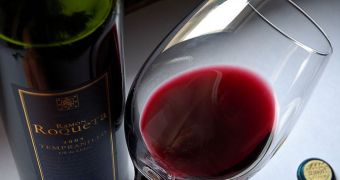Our bodies are a constant battleground between good and bad free radicals, chemicals that have been linked to a host of negative health effects. However, experts say that certain foods and drinks may be used to tip the balance in our favor.
Past studies have linked red wine, green tea and coffee with a positive health effect in this regard, in the sense that they fight negative free radicals, preventing the molecules from harming our cells. Chocolate was demonstrated that have a similar effect.
As part of Australia's National Science Week, experts at the Queensland University of Technology (QUT) will be making a presentation called Radical Wine and Chocolate at the Queensland Museum.
The purpose of the presentation is to determine the combination of chemicals that make foods we like taste great, or not so good, in the context of products that can help fight free radicals. The new meeting will unite chocolate and wine experts with food lovers, for a full cooperative experience.
Academics from the ARC Center of Excellence for Free Radical Chemistry and Biotechnology will also be attending the conference. The Center is a national research organization comprised of six Australian universities, including QUT.
“It's a constant war between good free radicals and bad free radicals. Chocolate and red wine, if you consume them in moderate amounts as part of your diet, can give your body a hand in its defense against bad free radicals as you age,” Seven Bottle says.
The expert holds an appointment as a professor in the QUT Faculty of Science and Technology. He explains that natural antioxidants contained in these beneficial foods or drinks have a tendency to protect the body against neurodegenerative diseases such as Alzheimer's and Parkinson's.
Other studies have also revealed that consuming these products in small amounts contributes to a reduced risk of people developing heart diseases. “Many of the free radicals responsible for the aging process also contribute to the spoilage of wine and the rancidity of food,” Bottle says.
“The public will use their sense of smell to identify common additives or fermentation by-products found in wine and we will show them which molecules are responsible for these aromas,” QUT Vice-Chancellor Research Fellow Dr. Kathryn Fairfull-Smith said of the upcoming event.
“The vinegary, tart taste from a bottle of wine that's off, for example, is caused by bacteria oxidizing ethanol,” the expert adds. She explains that attendants will get the chance to conduct a number of experiments on beverages, such as for example measuring acidity and sugar levels.
“If you're storing wine in containers that aren't sealed properly or at the right temperature, then this oxidization process can occur where the ethanol is turned into acetic acid, which gives the wine a harsh aftertaste,” she concldues.

 14 DAY TRIAL //
14 DAY TRIAL //